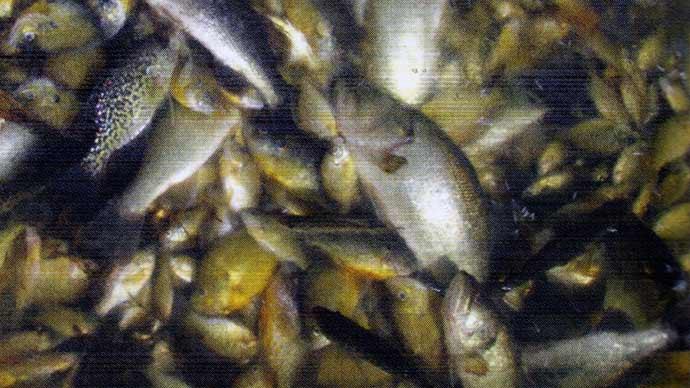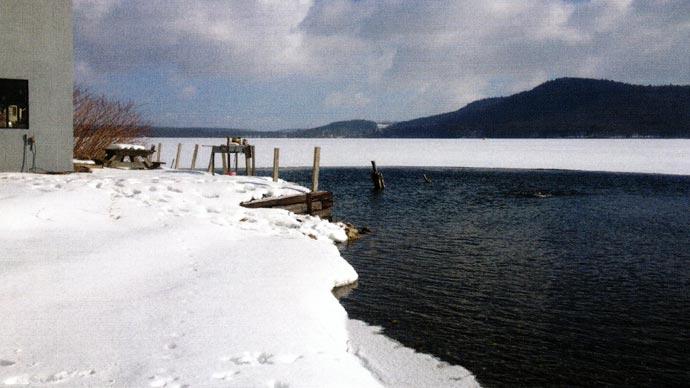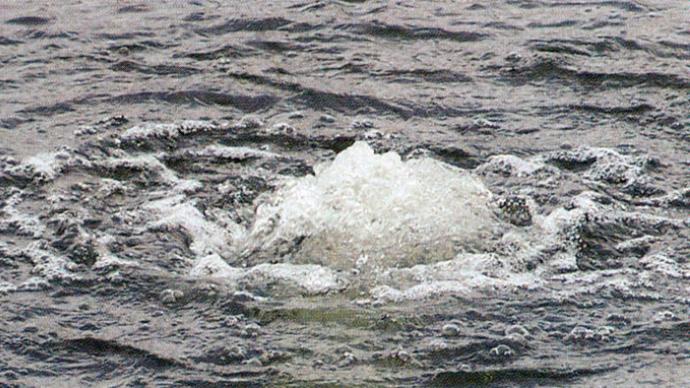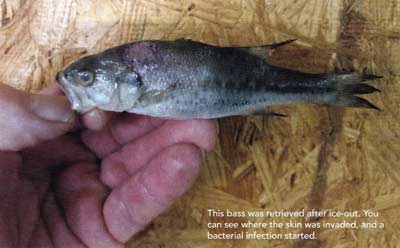
It's predictable. Every year, early spring into summer, I get calls from pond owners reporting fish kill events. Some are understandably angry, but most are merely concerned seeing their investment apparently going down the drain! "Is it a big problem? Can I stop it? Why did this happen?" And, "Why did it occur this year and not in years past?"
First, is it a big problem or not? One must initially ponder if this is a winterkill issue. Or, could it be a bacterial/viral disease issue?
Winterkill is the most common general diagnosis and acutely severe observation. This happens when water beneath ice becomes low, or even devoid, of adequate dissolved oxygen. In most cases, ice at/or greater than six-inch thickness and/or snow piled on the ice is often the culprit of this adverse incident. Cloudy ice and/or snow shrouding sunlight penetration through ice inhibits photosynthesis of oxygen-producing plants below the ice. Instead of adding oxygen to water, plants in darkness are constant consumers. With most living things under ice using oxygen, levels drop and, if they drop enough, fish suffocate. This results in a fish kill from dissolved oxygen depletion. When your lake or pond reveals dead fish, whether under the ice, at ice out, or even a few weeks beyond, perhaps a bit more forensic science is needed. Yes, it is gross, but this is where your many hours of viewing CSI (city of choice) will come in handy. First, as soon as the ice is gone, slowly walk or drive around the lake or pond, gazing at the surface and bottom. Attempt to find any submersed or floating carcasses and bones of dead or decaying fish on the bottom. Look at these fish and try to estimate the time of death. Not to find a criminal's alibi, but to determine if fish died when ice or snow was present. This may sound a bit morbid, but at times winterkills can result in severe mortality impacts and total kills. If you believe you are observing this, then spend extra time looking for activity of "life" within the pond along spawning areas to help estimate the actual severity of the kill. If unsure, consult a fisheries professional to conduct a survey. Winterkills are a silent killer.
How do you come to the realization that a bleak adverse incident may have occurred or is occurring from dissolved oxygen depletion, and what do you do about it? Witnessing the dread of dead and dying fish (or at least sick and abnormal behavior upon ice- out, typically these fish are identified along the edge, listing on their side) These "sick" fish are easily identified by lethargic activity or spinning in a circular swim pattern. This is indicative of a common spring affliction known as Saprolegnia, which appears to be big, fuzzy cotton balls often starting at the base of the tail and sporadically forming along the fish sides. It's a fungus. However, Saprolegnia often forms after a bacterial or viral infection due to the stresses of being in low oxygen, or some other environmental stressor. At the same time, the fungus can form on its own merit, typically after a stressor. If irritation zones are present on the epidermis, skin, or gills of the fish, this condition is very likely the result of an illness. The fungus is a symptom, not the main problem. The problem is stressors which weaken the fish, an infection occurs, and then the fungus attaches to the infected site. When fungus is present on a fish in cool water, death is imminent.
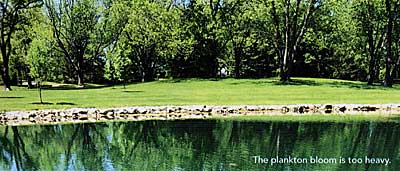
Winters are commonly and simply looked upon as a stress event on the fish population. Stress events cause fish to weaken and this weak state makes them more susceptible to opportunistic bacterial and fungal infections. This may be why we see pond and lake fish diseases much more prevalent in the spring, and persisting up to a month post-spawn in many species when they are most vulnerable.
Why this happens some years, but not others can depend on random variables including just plain bad luck! To get through winter, a fish merely needs an adequate amount of fats, electrolytes, and minerals available to metabolize. The longer or harsher the winter, the more the fish need. I've observed some of the problem often stems back all the way to the previous summer. If a fish is subjected to bad water quality, overcrowded or unbalanced populations, and poor nutrition, it increases the probability of disease issues because the fish did not have the storage capacity to make it through the winter.
Be sure your fish are in great shape going into winter months. That happens at the beginning of spring, all the way to winter. We have looked into many ways to address and treat ponds during these seasonal outbreaks but the pure volume of a pond or lake often makes it economically unfeasible.
Trying to treat a disease or arrest the growth of Saprolegnia isn't a normal practice in a pond. The good thing is that these outbreaks do not last long. I'm sensitive to the fact that one dead fish is too many, but most of the time, these illnesses adversely affect 20-30 fish per acre. When you observe more than 20-30 per acre and see fresh fish dying for more than three weeks, that is when it is time to get a professional on the horn.
While it's easy to blame winterkills mainly on low dissolved oxygen, the truth is most winterkills can be prevented. Keep water quality healthy, don't go into winter with too much plant mass or a dense plankton bloom, and make sure your fish have the best nutrition. That means keep them from overcrowding, strive to have a balance with a healthy food chain, and supplement your fish with a high-quality fish food if that makes sense. Do these things during the productive months.
Acquiring a comprehensive CSI-style forensic understanding of what your pond and lake is telling you will make it less stressful...both on you and your favorite fishing hole.
Reprinted with permission from Pond Boss Magazine

